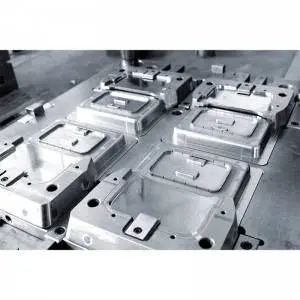Plastic bottle cap molds are essential components in the production of bottle caps. They play a crucial role in ensuring the manufacturing process runs smoothly and efficiently. However, like any other tool or equipment, these molds need proper care and attention to maintain their processing performance. In this article, we will discuss some useful tips on how to improve the processing performance of plastic bottle cap molds.
First and foremost, it is essential to clean the molds regularly. Over time, dust, debris, and residual plastic can accumulate on the surface of the molds, affecting their performance. Therefore, it is necessary to clean them thoroughly after each use. Use a soft brush or compressed air to remove any loose particles. Then, soak the molds in warm water and mild detergent solution to remove any stubborn dirt or stains. Finally, rinse them thoroughly with clean water and dry them completely before storing or using them again.
Next, proper lubrication is crucial for ensuring smooth and efficient operation of the molds. Applying a thin layer of mold release agent or silicone spray on the surface of the molds can help reduce friction and prevent the bottle caps from sticking to the mold. It is essential to choose a lubricant that is compatible with the material used for the molds to avoid any adverse effects.
Additionally, regular inspection of the molds is necessary to identify any signs of wear or damage. Over time, the constant pressure and high temperatures involved in the molding process can cause the molds to deteriorate. Inspect the molds thoroughly for any cracks, dents, or deformities. If any issues are found, it is crucial to address them immediately. Repairing or replacing damaged molds will not only improve their processing performance but also ensure the quality of the bottle caps produced.
Furthermore, optimizing the molding parameters can greatly enhance the processing performance of plastic bottle cap molds. Adjusting factors such as temperature, pressure, and cooling time can help achieve better mold filling, reduce cycle time, and minimize defects. Experiment with different settings to find the optimum parameters that yield the best results. Consulting with experts or conducting trials can provide valuable insights and suggestions on how to improve the molding process.
Lastly, investing in high-quality plastic bottle cap molds is essential for long-term performance improvement. Cheap or inferior quality molds may save costs initially but can lead to frequent breakdowns, increased downtime, and compromised product quality. It is better to choose molds made from durable and corrosion-resistant materials that can withstand the demanding conditions of the molding process. Additionally, collaborating with reputable and experienced mold manufacturers can ensure the molds are designed and built to meet the specific requirements of bottle cap production.
In conclusion, improving the processing performance of plastic bottle cap molds requires regular cleaning, proper lubrication, thorough inspection, optimization of molding parameters, and investing in high-quality molds. By following these tips, manufacturers can ensure the molds remain in good condition, allowing for efficient and high-quality production of bottle caps.
Post time: Nov-20-2023

